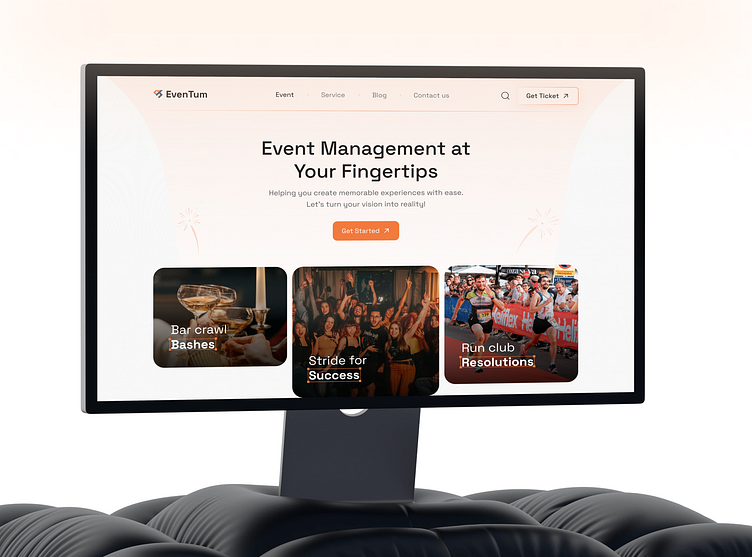
In today’s fast-paced world, event management software has become an essential tool for businesses and organizations. From corporate conferences to weddings, these solutions streamline processes, enhance attendee experiences, and maximize ROI. This guide explores global event management software development, its benefits, key features, and strategies to build cost-effective solutions.
Why Invest in Event Management Software?
Event management software is no longer a luxury; it’s a necessity. Whether you’re organizing small-scale gatherings or large international events, these platforms simplify operations and improve efficiency. Here’s why businesses globally are investing in custom event management solutions:
Streamlined Processes
Automation is at the heart of effective event management. By automating tasks like registration, ticketing, and communication, organizations can significantly reduce the time and effort required to manage events. This not only leads to smoother operations but also minimizes the likelihood of errors that can arise from manual processes.
Improved Attendee Experience
Offering seamless interactions through mobile apps, real-time updates, and personalized notifications enhances the overall attendee experience. By providing easy access to schedules, tickets, and important information, event organizers can ensure that attendees feel engaged and informed throughout the event.
Scalability
As businesses grow, their event needs evolve. Custom event management software allows organizations to adapt their systems to meet increasing demands without starting from scratch. This scalability ensures that businesses can manage larger events or more frequent gatherings as they expand.
Global Reach
In an interconnected world, managing hybrid or virtual events is crucial. Event management software enables organizations to connect with audiences worldwide, facilitating participation from remote locations while maintaining engagement through interactive features.
Key Features of Cost-Effective Event Management Software

When building an event management platform on a budget, it’s essential to focus on features that deliver maximum value without unnecessary complexity. Here are some key functionalities to consider:
1. Registration and Ticketing
Simplifying attendee sign-ups with integrated ticketing systems and payment gateways is critical for both in-person and virtual events. A streamlined registration process enhances user experience and encourages higher attendance rates.
2. Marketing Automation
Promote events effectively through email campaigns and social media integration. Automating marketing efforts saves time and reduces costs associated with manual outreach while ensuring consistent messaging across channels.
3. Venue Management
Efficiently manage venue logistics by incorporating scheduling tools, resource allocation features, and capacity tracking capabilities. This ensures that all aspects of venue management are handled smoothly.
4. Analytics and Reporting
Provide organizers with insights into attendee engagement, ticket sales, and overall event performance using real-time dashboards. Data-driven decision-making allows for continuous improvement in future events.
5. Mobile Compatibility
Ensure your platform is mobile-friendly or offers a dedicated app for attendees to access schedules, tickets, and updates on the go. Mobile compatibility enhances user engagement and accessibility.
Steps to Build Affordable Event Management Software
Developing cost-effective event management software requires careful planning and execution. Here’s how you can create a budget-friendly solution:
1. Define Your Requirements
Focus on what’s essential for your target audience. Avoid unnecessary features that drive up development costs by prioritizing core functionalities that directly address user needs.
2. Choose Open-Source Tools
Leverage open-source frameworks like Laravel or Django to reduce licensing costs while maintaining flexibility for customization. Open-source solutions often come with robust community support and extensive documentation.
3. Outsource Development
Consider outsourcing to experienced software development companies in regions with lower labor costs but high-quality output (e.g., Eastern Europe or South Asia). This approach can lead to significant savings without compromising quality.
4. Use Cloud Solutions
Opt for cloud-based infrastructure like AWS or Google Cloud to minimize upfront hardware expenses while ensuring scalability and reliability in performance.
5. Develop in Phases
Start with a Minimum Viable Product (MVP) that includes core features essential for launch. This approach allows you to gather user feedback early on and make informed decisions about additional functionalities as your budget allows.
Revised Cost Estimates for Event Management Software Development
The cost of developing event management software depends on its complexity, features, and development approach. Here’s an updated breakdown with more affordable options:
- Basic Systems (USD 10,000 – USD 20,000)
Includes essential features like registration, ticketing, and basic reporting—ideal for small businesses or startups hosting simple events. - Mid-Tier Systems (USD 25,000 – USD 50,000)
Offers additional functionalities like marketing automation and mobile compatibility—suitable for medium-sized organizations managing multiple events annually. - Advanced Systems (USD 60,000 – USD 100,000)
Includes AI-driven analytics, hybrid event support, and extensive customization—best for large enterprises hosting global or high-profile events.
By focusing on core functionalities initially and scaling over time, businesses can significantly reduce upfront costs while still delivering impactful solutions.
Strategies to Reduce Development Costs Further
If you’re working with a limited budget but still want high-quality software, consider these tips:
- Leverage Existing Platforms: Use customizable off-the-shelf solutions like Eventbrite or Cvent as a foundation instead of building from scratch.
- Focus on Essential Features: Avoid adding advanced features like AI or VR unless absolutely necessary; prioritize what will provide the most immediate value.
- Hire Freelancers or Small Teams: Smaller teams can often deliver quality work at a lower cost than large agencies due to lower overhead expenses.
- Automate Testing: Use automated testing tools to save time during the quality assurance phase; this reduces labor costs associated with manual testing.
- Negotiate with Vendors: If outsourcing development or purchasing third-party tools, negotiate pricing based on long-term partnerships or bulk agreements.
Challenges in Building Cost-Effective Event Management Platforms

While reducing costs is important, it’s crucial not to compromise on quality or functionality. Here are some common challenges you may face:
- Balancing Cost vs Quality: Cutting too many corners can lead to subpar software that doesn’t meet user needs; ensure that essential functionalities are not sacrificed for cost savings.
- Scalability Issues: Ensure your platform can handle growth without requiring expensive overhauls later; this may involve investing slightly more upfront for better architecture.
- Integration Complexities: Seamlessly integrating third-party tools like payment gateways can be tricky but is essential for functionality; plan for this during development.
- Data Security Compliance: Protect sensitive attendee data while adhering to global regulations like GDPR or CCPA; this may require additional investment in security measures but is crucial for trustworthiness.
Conclusion: Build Smart Without Breaking the Bank
Developing event management software doesn’t have to be prohibitively expensive if you focus on smart strategies and prioritize your needs effectively. By leveraging open-source tools, outsourcing wisely, and starting small with an MVP approach, businesses can create impactful solutions without exceeding their budgets.
At Appfodev, we specialize in delivering affordable yet powerful custom event management solutions tailored to your unique needs. Our team ensures that you get maximum value without compromising quality—no matter your budget size.
Ready to build cost-effective event management software? Contact us today for a free consultation!
FAQs:
- Can I build event management software under USD 10,000?
Yes! By focusing on essential features only (like registration and ticketing) and using open-source tools or off-the-shelf platforms as a base. - How much does it cost to add AI-driven features later?
Adding AI-driven analytics or attendee matchmaking typically starts at around USD 10,000–15,000 but depends on complexity. - What’s the cheapest way to develop an MVP?
Outsource development to regions with lower labor costs and focus only on core functionalities initially. - Are there any free tools I can use?
Yes! Open-source platforms like Odoo Events offer free basic functionality that can be customized further as needed.





